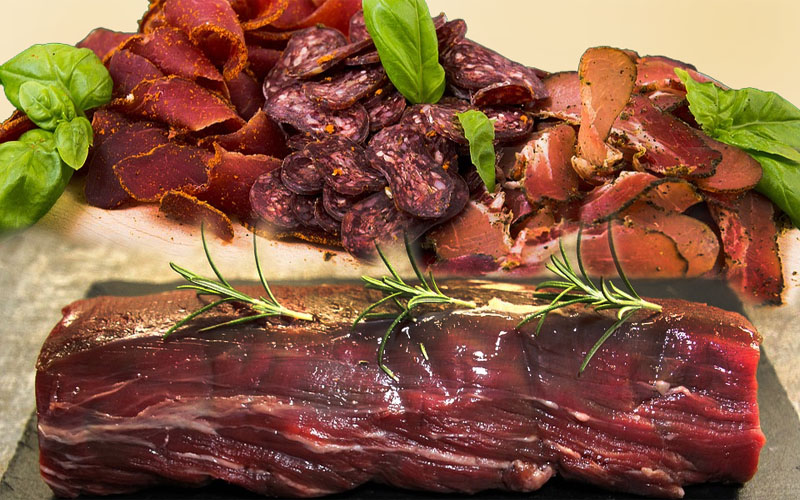WCRF UK recommends limiting consumption of red meat (such as beef, pork and lamb) and avoiding processed meats.
To reduce your cancer risk, eat no more than 500g (cooked weight) per week of red meats, like beef, pork and lamb, and avoid processed meats such as ham, bacon, salami, hot dogs and some sausages.
If you want inspiration for healthy meals that do not use a lot of red meat, then there are lots of ideas in their recipes section.
What is red meat?
Red meat refers to beef, pork, lamb and goat – foods like hamburgers, minced beef, pork chops and roast lamb.
As a rough guide 500g of cooked red meat is the same as 700 to 750g of uncooked red meat. To help visualise how much this is, a medium portion of roast beef or pork is about 90g and a medium steak is about 145g.
What is processed meat?
This is meat preserved by smoking, curing or salting, or by the addition of preservatives. Examples include ham, bacon, pastrami and salami, as well as hot dogs and some sausages. Hamburgers and minced meats only count as processed meat if they have been preserved with salt or chemical additives.
Meat and Cancer – the Evidence
The evidence that red meat is a cause of bowel cancer is convincing and there is also convincing evidence that processed meat is a cause of bowel cancer.
Red meat contains substances that are linked to bowel cancer. For example, ham, the compound that gives red meat its colour, has been shown to damage the lining of the colon.
Studies also show that people who eat a lot of red meat tend to eat fewer plant-based foods, so they benefit less from their cancer-protective properties.
When meat is preserved by smoking, curing or salting, or by the addition of preservatives, cancer-causing substances (carcinogens) can be formed. These substances can damage cells in the body, leading to the development of cancer. Read more...
RELATED INFO:











